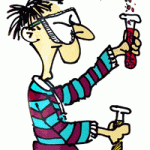Motivation: Whatever doesn’t kill us
(This post is the fourth in a series devoted to looking at how sports and design are aligned. For more in this series see How being a jock makes me a better UX Designer, UX and Sports? Ya Damn Right!, and How to find the best UX mentor. I also presented some of this material at Interaction 12. Be sure to check out the slides from that talk as well!)
I remember the summer well. It was the summer right before my freshman year in high school. Somehow, I had been asked to play with the Varsity soccer team, and therefore I was attending the twice a day practices (practices that were brutal, to say the least). There was one hill nicknamed “The Rambo Hill” that was part of our everyday routine. In short, this was a steep, rocky (no pun intended) hill that we would run up and down. It was painful (especially falling down the hill after your cleat comes untied… but that is another story). Being one of three freshman on the team I was younger than everyone else, and because of that had very little, if any, clout. I decided to try an experiment, both for my own mental stamina, as well as to test the relationship with my team. But more on that later.
I’m telling you this story today because I think that we, as designers, are lacking the same sort of clout within our teams and organizations. Although UX is the newest buzz term, and everyone thinks they need us, they still have not granted us enough respect to really understand what we do. If you think that being “needed” on a team in order to draw the picture in omnigraffle is respect, then I challenge you to a duel. Luckily, times are changing. But, we aren’t quite where we need to be to be truly respected. And, therefore, perhaps we should try a similar experiment to the one that I conducted back during that summer.
First, I think it’s important to acknowledge the problems with not having enough respect (insert Rodney Dangerfield voiceover) or clout. First off, it is just plain demoralizing to be the only one in the room that respects your work and really knows what you do. As I said, respect isn’t just about being invited to the party, it’s about being invited to the party for the right reasons. And, unfortunately with us, that is not always the case. The second problem is that it is extremely hard to bring the correct solution or any solution forth for discussion when your position within the team is misunderstood or under respected. The third issue is that it is even harder to expect to get a representative at any higher level in an organization if your role is misunderstood and lacks clout.
So, what is the experiment that I ran with my soccer team that summer? I decided, on my own free will, to become a motivator. Doing so meant that I was the person cheering on the team no matter how much pain or exhaustion I felt. When we were running up the hill, around the field, over the river and through the woods I would yell out “Come on girls! We can do this! Whatever doesn’t kill us, makes us all stronger!”.
Bringing this over to design… this means our solution to the problems I mentioned above lies in becoming motivators. That’s right, you should motivate your teammates. Tell them, aloud, when they are doing a good job. When was the last time you saw a developer on a tight deadline all stressed out and said to them “Hey, you know what? You got this. You’re doing a great job and I know you can do this.”. Pretty powerful statement right? Imagine how they will feel when you say that? Also, you want to keep things on the project positive and push your team to excel both with your words and your actions.
You’ll be surprised what being a motivator can do. That summer, my cheering became my tagline. It was probably, after awhile, pretty freakin annoying, but it didn’t matter. This type of cheering, as well as keeping a positive attitude and complimenting and motivating individual teammates as well as everyone on the whole, shifted something. People began to trust in me as a teammate. They looked at me as someone who understood how they felt, even if I was less experienced. They wanted me around more. And by coupling this with my will to work hard and learn I gained a whole lot of respect and clout.
I think that running this same experiment will work within design. By keeping a positive attitude, recognizing effort and pushing your teammates (especially your non-design teammates) to excel you will earn a great deal of trust and not long after a high level of respect. You are no longer the creative who sits in the corner and does the fun work… you are a part of the team! You are showing that you understand how everyone else feels and thus you can be trusted. And once you earn this clout and respect the sky is the limit for how far you can take your role and the role of this profession. By letting down your guard, and pushing your team to be better, you become the one they want around more, and not just for your wireframing skills either.

